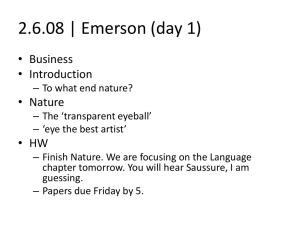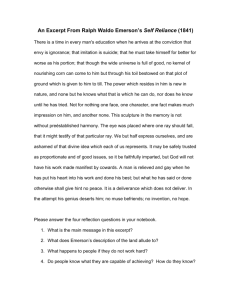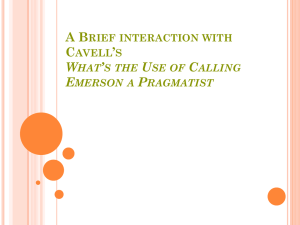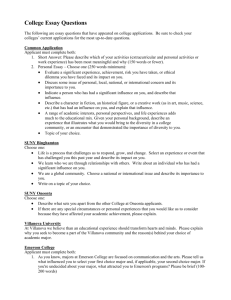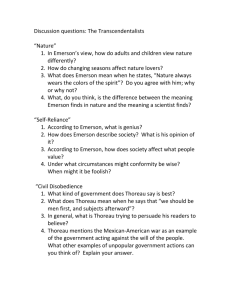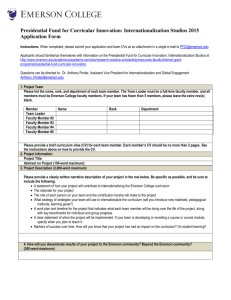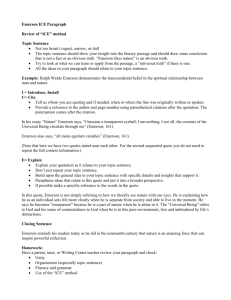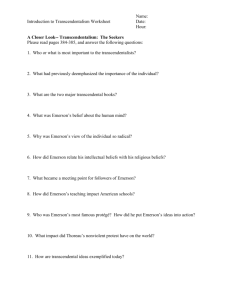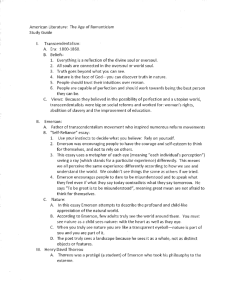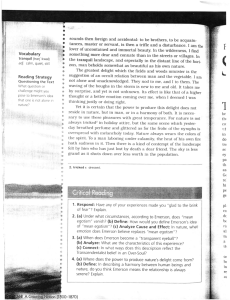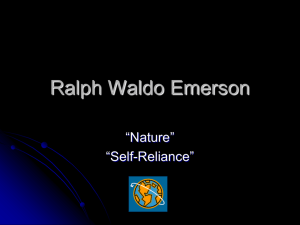Emerson's Transparent Eyeball Assignment: Nature Essay
advertisement
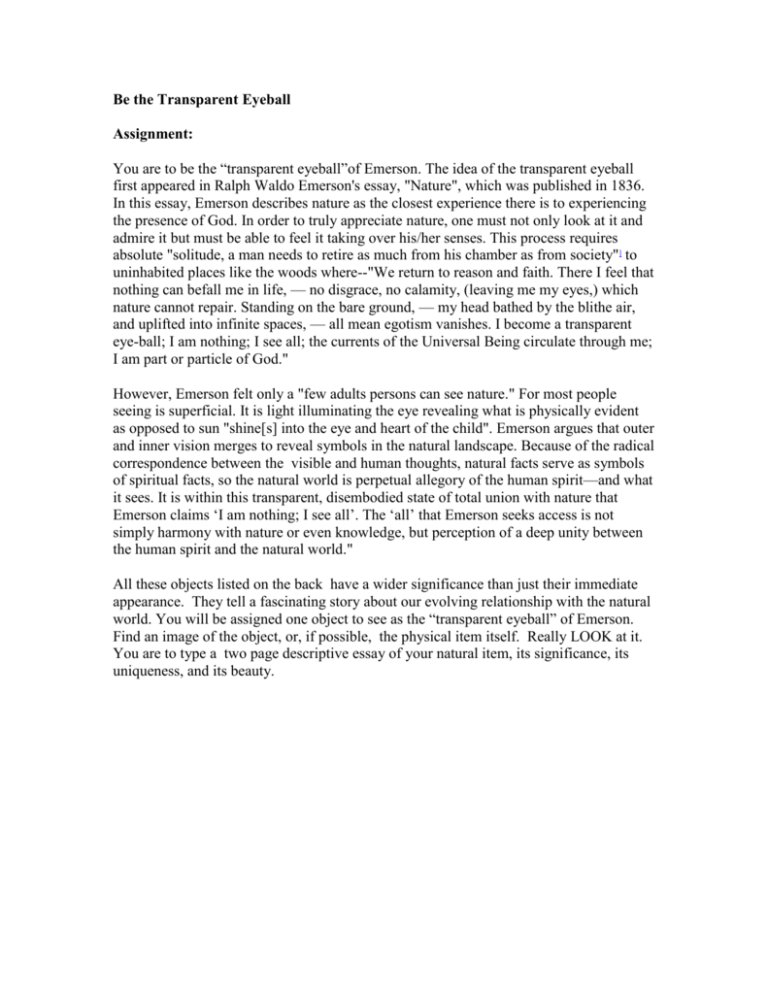
Be the Transparent Eyeball Assignment: You are to be the “transparent eyeball”of Emerson. The idea of the transparent eyeball first appeared in Ralph Waldo Emerson's essay, "Nature", which was published in 1836. In this essay, Emerson describes nature as the closest experience there is to experiencing the presence of God. In order to truly appreciate nature, one must not only look at it and admire it but must be able to feel it taking over his/her senses. This process requires absolute "solitude, a man needs to retire as much from his chamber as from society"] to uninhabited places like the woods where--"We return to reason and faith. There I feel that nothing can befall me in life, — no disgrace, no calamity, (leaving me my eyes,) which nature cannot repair. Standing on the bare ground, — my head bathed by the blithe air, and uplifted into infinite spaces, — all mean egotism vanishes. I become a transparent eye-ball; I am nothing; I see all; the currents of the Universal Being circulate through me; I am part or particle of God." However, Emerson felt only a "few adults persons can see nature." For most people seeing is superficial. It is light illuminating the eye revealing what is physically evident as opposed to sun "shine[s] into the eye and heart of the child". Emerson argues that outer and inner vision merges to reveal symbols in the natural landscape. Because of the radical correspondence between the visible and human thoughts, natural facts serve as symbols of spiritual facts, so the natural world is perpetual allegory of the human spirit—and what it sees. It is within this transparent, disembodied state of total union with nature that Emerson claims ‘I am nothing; I see all’. The ‘all’ that Emerson seeks access is not simply harmony with nature or even knowledge, but perception of a deep unity between the human spirit and the natural world." All these objects listed on the back have a wider significance than just their immediate appearance. They tell a fascinating story about our evolving relationship with the natural world. You will be assigned one object to see as the “transparent eyeball” of Emerson. Find an image of the object, or, if possible, the physical item itself. Really LOOK at it. You are to type a two page descriptive essay of your natural item, its significance, its uniqueness, and its beauty. Human Brain Baleen Plate Ammonite Fossil Butterfly Pine Cone Bird’s egg Cowrie Shell Pearl Yeast Insect damaged leaf Tiger paw with claws Nautilus Shell Octopus eye Moth Horse hoof Bunch of Grapes Tiger fish Iguanodon Cat’s eye Electric Ray Platypus Nutmeg Ambergris Cuttlefish Bone Tilted Gravestone Avian Skeleton Crab leg joint Gecko foot Romanesco Broccoli Honeybee Comb Sun-Moon Symmetry Cat Whiskers Honeybee Body Hummingbird Sunflower Moss Petrified Wood Spider Web Dung Beetle Snowflake Milky Way Galaxy Ice Tree Ring Acorn Leaf Elephant tusk 70.Mink or fur Garden peas Iceberg Banana Shrimp Jellyfish Coral Snakeskin Apple Gastrolith Ear of Corn Stave of Wheat Termite Mound Frog’s Legs Fly Eye Bird Wing Shark tooth Cotton Peacock feather Lion Mane Spider Web Bamboo stem Coconut husk Cinammon Stick Silkworm cocoon Dog Footprint
